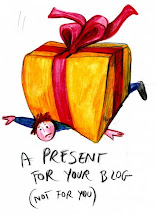
MAHATMA GANDHI
Mohandas Karamchand Gandhi was born in Porbandar, a coastal town in present-day Gujarat, India, on 2nd October,1869. His father, Karamchand Gandhi (1822-1885), who belonged to the Hindu Modh community, was the diwan (Prime Minister) of the eponymous Porbander state, a small princely state in the Kathiawar Agency of British India. His grandfather's name was Uttamchand Gandhi fondly called as Utta Gandhi. His mother, Putlibai, who came from the Hindu Pranami Vaishnava community, was Karamchand's fourth wife, the first three wives having apparently died in childbirth. Growing up with a devout mother and the Jain traditions of the region, the young Mohandas absorbed early the influences that would play an important role in his adult life; these included compassion to sentient beings, vegetarianism, fasting for self-purification and mutual tolerance between individuals of different creeds.

Gandhi is commonly known around the world as Mahatma Gandhi (Mahātmā or 'Great Soul', an honorific first applied to him by Rabindranath Tagore) and in India also as Bapu ('Father').
He is officially honoured in India as the Father of the Nation; his birthday, 2 October, is commemorated there as Gandhi Jayanti, a national holiday and worldwide as the International Day of Non-Violence.
Mohandas Karamchand Gandhi was the pre-eminent political and spiritual leader of India during the Indian Independence movement.
 Gandhi was the pioneer of satyagraha—resistance to tyranny through mass civil disobedience, firmly founded upon ahimsa or total non-violence—which led India to independence and has inspired movements for civil rights and freedom across the world.
Gandhi was the pioneer of satyagraha—resistance to tyranny through mass civil disobedience, firmly founded upon ahimsa or total non-violence—which led India to independence and has inspired movements for civil rights and freedom across the world.
After assuming leadership of the Indian National Congress in 1921, Gandhi led nationwide campaigns to ease poverty, expand women's rights, build religious and ethnic amity, end untouchability and increase economic self-reliance.

Above all, he aimed to achieve Swaraj or the independence of India from foreign domination. As a practitioner of ahimsa, Gandhi swore to speak the truth and advocated that others do the same.
Gandhi lived modestly in a self-sufficient residential community and wore the traditional Indian dhoti and shawl, woven with yarn he had hand spun on a charkha. He ate simple vegetarian food and also undertook long fasts as a means of both self-purification and social protest.
 At age 13, Gandhi joined Kasturba, age 12, in a marriage arranged by their parents. They had four sons: Harilal and Manilal, born in India, and Ramdas and Devdas, born in South Africa.
At age 13, Gandhi joined Kasturba, age 12, in a marriage arranged by their parents. They had four sons: Harilal and Manilal, born in India, and Ramdas and Devdas, born in South Africa.
Gandhi studied law in London and returned to India in 1891 to practice. In 1893 he accepted a one year contract to do legal work in South Africa. At the time South Africa was controlled by the British. When he attempted to claim his rights as a British subject he was abused and soon saw that all Indians suffered similar treatment.

Gandhi stayed in South Africa for 21 years working to secure rights for Indian people. He developed a method of direct social action based upon the principles, courage, non-violence and truth called Satyagraha. He believed that the way people behave is more important than what they achieve. Satyagraha promoted non-violence and civil disobedience as the most appropriate methods for obtaining political and social goals.

In 1915 Gandhi returned to India. Within 15 years he became the leader of the Indian nationalist movement. Using the tenets of Satyagraha he led the campaign for Indian Independence from Britain. Gandhi was arrested many times by the British for his activities in South Africa and India. He believed it was honorable to go to jail for a just cause. Altogether he spent seven years in prison for his political activities. More than once Gandhi used fasting to impress upon others the need to be non-violent.
India was granted Independence in 1947 and partitioned into India and Pakistan. Rioting between Hindus and Muslims followed. Gandhi had been an advocate for a united India where Hindus and Muslims lived together in peace.

On January 13, 1948 at the age of 78, Gandhi began a fast with the purpose of stopping the bloodshed. After 5 days the opposing leaders pledged to stop the fighting and Gandhi broke his fast.
Twelve days later he was assassinated by a Hindu fanatic who opposed his program of tolerance for all creeds and religion.

Gandhi is commonly known around the world as Mahatma Gandhi (Mahātmā or 'Great Soul', an honorific first applied to him by Rabindranath Tagore) and in India also as Bapu ('Father').
He is officially honoured in India as the Father of the Nation; his birthday, 2 October, is commemorated there as Gandhi Jayanti, a national holiday and worldwide as the International Day of Non-Violence.
Mohandas Karamchand Gandhi was the pre-eminent political and spiritual leader of India during the Indian Independence movement.
 Gandhi was the pioneer of satyagraha—resistance to tyranny through mass civil disobedience, firmly founded upon ahimsa or total non-violence—which led India to independence and has inspired movements for civil rights and freedom across the world.
Gandhi was the pioneer of satyagraha—resistance to tyranny through mass civil disobedience, firmly founded upon ahimsa or total non-violence—which led India to independence and has inspired movements for civil rights and freedom across the world.After assuming leadership of the Indian National Congress in 1921, Gandhi led nationwide campaigns to ease poverty, expand women's rights, build religious and ethnic amity, end untouchability and increase economic self-reliance.

Above all, he aimed to achieve Swaraj or the independence of India from foreign domination. As a practitioner of ahimsa, Gandhi swore to speak the truth and advocated that others do the same.
Gandhi lived modestly in a self-sufficient residential community and wore the traditional Indian dhoti and shawl, woven with yarn he had hand spun on a charkha. He ate simple vegetarian food and also undertook long fasts as a means of both self-purification and social protest.
 At age 13, Gandhi joined Kasturba, age 12, in a marriage arranged by their parents. They had four sons: Harilal and Manilal, born in India, and Ramdas and Devdas, born in South Africa.
At age 13, Gandhi joined Kasturba, age 12, in a marriage arranged by their parents. They had four sons: Harilal and Manilal, born in India, and Ramdas and Devdas, born in South Africa. Gandhi studied law in London and returned to India in 1891 to practice. In 1893 he accepted a one year contract to do legal work in South Africa. At the time South Africa was controlled by the British. When he attempted to claim his rights as a British subject he was abused and soon saw that all Indians suffered similar treatment.

Gandhi stayed in South Africa for 21 years working to secure rights for Indian people. He developed a method of direct social action based upon the principles, courage, non-violence and truth called Satyagraha. He believed that the way people behave is more important than what they achieve. Satyagraha promoted non-violence and civil disobedience as the most appropriate methods for obtaining political and social goals.

In 1915 Gandhi returned to India. Within 15 years he became the leader of the Indian nationalist movement. Using the tenets of Satyagraha he led the campaign for Indian Independence from Britain. Gandhi was arrested many times by the British for his activities in South Africa and India. He believed it was honorable to go to jail for a just cause. Altogether he spent seven years in prison for his political activities. More than once Gandhi used fasting to impress upon others the need to be non-violent.
India was granted Independence in 1947 and partitioned into India and Pakistan. Rioting between Hindus and Muslims followed. Gandhi had been an advocate for a united India where Hindus and Muslims lived together in peace.

On January 13, 1948 at the age of 78, Gandhi began a fast with the purpose of stopping the bloodshed. After 5 days the opposing leaders pledged to stop the fighting and Gandhi broke his fast.
Twelve days later he was assassinated by a Hindu fanatic who opposed his program of tolerance for all creeds and religion.






18 comments:
गान्धी जी की स्म्रति को शत शत नमन । और आप्को इस महत्वपूर्ण पोस्ट और चित्रों के लिये बधाई ,धन्यवाद ।
Whenever I need any topical and relevant information, your blog is the best source. Thanks.
बहुत सुन्दर पोस्ट है।
महात्मा गांधी जी और
पं.लालबहादुर शास्त्री जी को
उनके जन्म-दिवस पर
इन महान विभूतियों को नमन।
Mahatma Gandhi,unfortunately is being used for political gains by certain parties.
Nice blog...
Very informative and enjoyed reading it. Well written , Babli.
A Real Legend !! He was one of the finest man ...Great..
Good info, at the right time. Keep writing...
Very good post on the occassion of Gandhi Jayanti. Well written.
I agree with Albert Einstein, when he says , Generations to come will scarce believe that such a one as this ever in flesh and blood walked upon this earth."
thanks for sharing this information.
Rare pictures and informative. Thanks
informative....
I simply loved this post!!!
Bapu ko shat shat naman.
great personality..gr8 post...keep up yr good work babli..sure u doing well.best wishes always to u...
I have been enjoying your comments in other blogs. Finally I decided to come here and lo! fantastic!. Enjoyed reading some of your earlier posts as well. Thanks.
Hi! I came accross your blog on an image search. I'm stunned by the paintings on your banner. Would you be able to give me the name of the artist?
Thanks!
Post a Comment